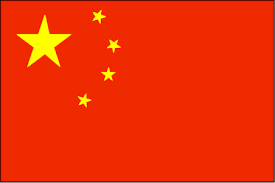Monday 22 February 2016 - 09:32
Story Code : 202809
crossing the Gulf: China sets eyes on Middle East
Although�China�has conventionally seen the Middle East as�mostly an energy source, the country has developed a new framework, which would expand cooperation.
China's Foreign Ministry�released�a policy paper on�the Middle East in�January, and continues to�look for�new ways of�cooperation.
"In the policy paper, the framework of�the relations are explained using the '1+2+3 cooperation pattern,' with�energy cooperation as�the 'core,' infrastructure construction and trade and investment facilitation as�the '2' wings, and nuclear energy, space satellites and new energy as�the '3' breakthroughs," China-Turkey ties analyst�Umut Erguns��wrote�in Turkey's Hurriyet Daily.
China currently exports consumer goods to�Middle Eastern countries, and is developing nuclear energy cooperation with�Jordan. However, its attempts to�inject itself into�the Middle Eastern policy debate have not brought many results.
Sunni Shift?
Because China has thus far avoided making a principled position in�the Middle East, increased confrontation in�the region has meant taking increasingly shaky diplomatic steps.
China recently attempted to�host its own Syrian peace talks, abandoning its unequivocal support of�Bashar Assad. It supported Saudi Arabia's position on�Yemen in�the UN Security Council, while at�the same time cancelling a visit to�Riyadh to�avoid tensions with�Iran.
According to�Gal Luft, co-director of�the Institute for�the Analysis of�Global Security, the moves could be a reaction to�the reduced role of�the United States in�the region and Russia's moves in�Syria.
"China has for�several months harbored a suspicion that the United States, entering an election year while drowning in�domestic oil and gas supply, is not as�interested in�the Middle East as�it has been for�the past�half century," Luft�wrote�in�Foreign Policy.
While such a shift does make sense, not being familiar with�all the players could spell trouble for�China, as�it runs the risk of�alienating its current partners and not significantly improving ties with�other players, such as�Saudi Arabia.
Party of�Business
While China has made inroads in�the Middle East because of�its business interests, carrying out�a proactive�foreign policy�was mandated at�the Party level.
While the "One Belt One Road" policy is seen as�the driver for�the new change, disappointments in�previous party policy set by�Deng Xiaoping. The policy backfired in�2011 in�Libya, where China lost a considerable share of�investment projects because of�NATO intervention in�the country's conflict and subsequently, another civil war.
The Libyan civil war also led to�China's first foreign military action since�the Deng Xiaoping era, when China evacuated its workers from�the country.
"The events in�Libya showed that no economic might can compensate the lack of�necessary military-political instruments to�assert influence," Vasily Kashin, senior fellow at�the Center for�Analysis of�Strategies and Technologies�wrote�in�2012.
Whether China's new course is able to�prove that it is capable of�being an effective mediator in�the Middle East, could depend on�how deeply it is willing to�get involved.
By Sputnik
# Tags











